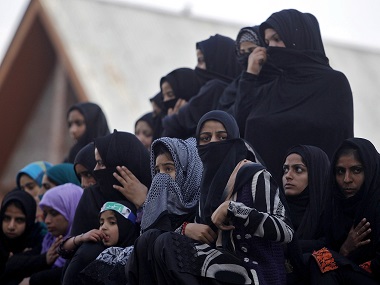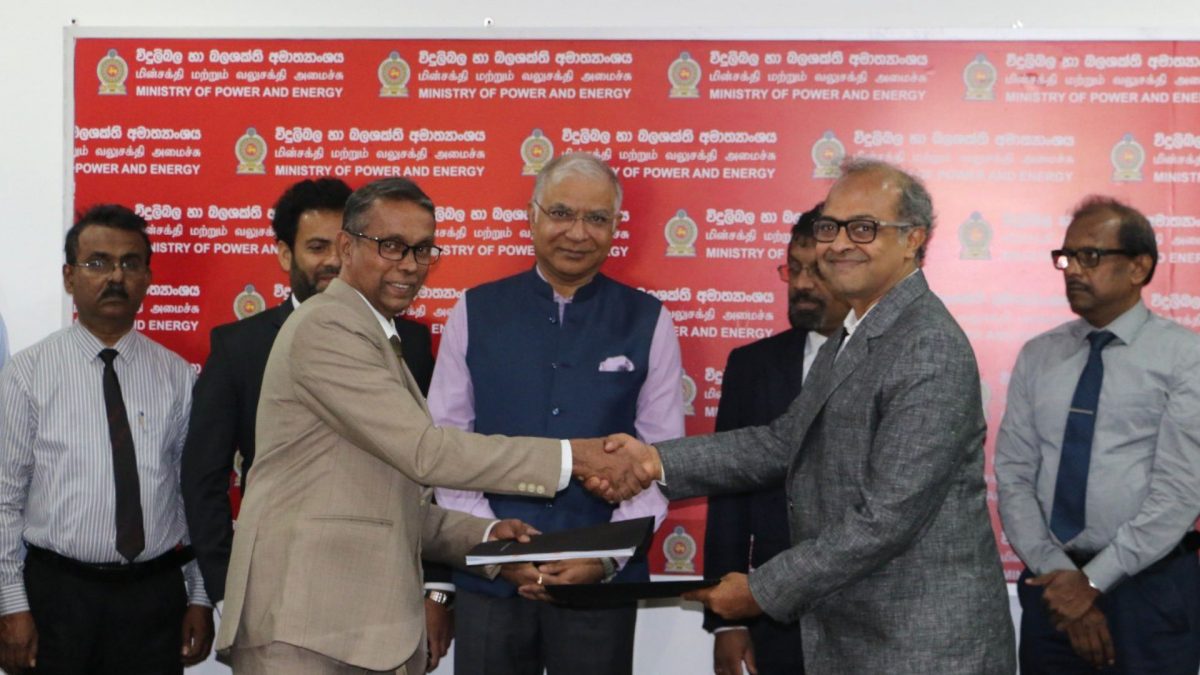Triple Talaq hearing highlights: Practice prima facie related to fundamental rights, says Supreme Court
The Supreme Court on Thursday made it clear that it would examine whether the practice of triple talaq among Muslims is fundamental to their religion as it began hearing petitions challenging the practice.
)
What are the actual implications of the Supreme Court hearing?
Because matters like marriage are largely personal and based on the willingness of an individual to carry forward a relationship, it is worth asking about the actual effect of the apex court’s ruling, irrespective of which way it goes.
In an interview with Scroll , Faizan Mustafa, vice-chancellor of NALSAR University of Law, said, “Unconstitutional or not, most divorcees, out of fear of God, will accept the completion of divorce on the pronouncement of triple talaq.”
Mustafa also said that the apex court ruling will not prevent clerics issuing certificates of divorce to a couple who divorced through triple talaq. “Clerics issue fatwas to those who seek their opinion. Such opinions do not have any legal sanctity. They will continue to issue fatwas as per their understanding of Muslim Personal Law,” Mustafa said.
Details of the Shayara Bano case
After being married for 15 years, Shayara Bano was subjected to triple talaq by her husband in October 2015.
Hailing from Uttarakhand, she then approached the Supreme Court in 2016, challenging the validity of arbitrary practices against women followed by Muslims.
Her petition asks the Supreme Court to declare talaq-e-bidat, polygamy and nikah halala as illegal and unconstitutional on the grounds that they violate the rights guaranteed by the Constitution under Articles 14, 15, 21 and 25.
Shayara Bano’s husband has opposed her plea on the grounds that they were governed by the Muslim Personal Law and all three discriminatory practices are sanctified provisions under Muslim Personal Law.
Religious practices are not protected by Article 25 since they might jeopardise the welfare of citizens.
It is clear under the Constitution that religious freedom is subject to all other fundamental rights. Article 14, which guarantees the right to equality, overrides Article 25 because triple talaq denies a Muslim woman’s equality before the law.
Similarly, Article 25 is subject to Article 15(1) which says that the State “shall not discriminate against any citizen on grounds only of religion, race, caste, sex…”
Since triple talaq does not work in favour of women, it violates Article 15(1) of the Constitution.
Bano’s plea will affect many women victims in the country who are vulnerable to the instantatenous oral and unilateral triple talaq.
The key difference between ‘Talaq-e-Sunnah’ and ‘Talaq-e-Biddah’
To properly understand the triple talaq, it is crucial to understand the difference between the two ways in which Islamic law allows divorce.
One of these ways is ‘Talaq-e-Sunnah’, which allows divorce as per the Prophet’s sayings and dictation in the Quran. The other one is ‘Talaq-e-Biddah’ which allows instant divorce, a practice which was not formed later.
Most Muslim women bodies opposing triple talaq want Muslim bodies to reject Talaq-e-Biddah, according to News18 .
Most Muslim women want Muslim bodies to adopt Talaq-e-Sunnah, which allows divorce only after a series of steps which involve a lot of discussion between the husband and wife.
Triple talaq banned by many Muslim-majority nations
The Indian Express reports that this practice has been banned by many countries like Pakistan, Bangladesh, Turkey, Egypt, Cyprus, Sri Lanka, Tunisia and Algeria.
Triple talaq prima facie related to fundamental rights: SC tells Kapil Sibal
Replying to Kapil Sibal, who said that the triple talaq issue was outside the ambit of judicial review, the apex court said that this issue was, in fact, prima facie related to fundamental rights.
No wrongdoing in the name of religion allowed: Ravi Shankar Prasad
“The issue of triple talaq is not of any religion or community. This is about gender justice, gender dignity and gender equality,” said Union minister Ravi Shankar Prasad.
“Nothing wrong can be done in the name of religion. If a Hindu says that he wants to indulge in untouchability because of his religion, that is not allowed,” Prasad added.
Muslim women pray to Lord Hanuman, seek divine intervention for the end of triple talaq
According to a report in The Times of India , Muslim women were reciting the ‘Hanuman Chalisa’ in the Sankatmochan temple of Patalpuri Math of Daranagar locality in Varanasi, praying for the end of triple talaq practice.
The report also said that the prayers were being performed by activists of Muslim Mahila Foundation.
Futher updates in court from 2 pm
#TripleTalaq: Bench rises for lunch, next updates post 2 pm.
— Bar & Bench (@barandbench) May 11, 2017
Triple talaq outside the ambit of judicial review: Kapil Sibal
Kapil Sibal, who is appearing for All India Muslim Personal Law Board (AIMPLB), has said that triple talaq “is an issue of faith and personal law and hence it is outside the ambit of judicial review.”
Sibal further said that it was up to the Parliament to make laws but the courts could not get into the issue, reported News18 .
What is Nikah Halala?
Nikah Halala is a practice intended to curb the incidence of divorce under which a man cannot remarry his former wife without her having to go through the process of marrying someone else, consummating it, getting divorced, observing the separation period called ‘Iddat’ and then coming back to him again.
Does personal law come under the ambit of Constitution of India? Four questions Supreme Court will address
According to reports , the Supreme Court will consider following four questions submitted by the Centre in a previous hearing in February this year:
– Whether the impugned practices of talaq-e-biddat, Nikaah halala and polygamy are protected under Article 25(1) of the Constitution of India?
– Whether Article 25(1) is subject to part III of the Constitution and in particular Articles 14 and 21 of the Constitution of India?
– Whether personal law is law under Article 13 of the Constitution?
– Whether the impugned practices of talaq-e-biddat, Nikaah halala and polygamy are compatible with India’s obligations under International treaties and covenants to which India is a signatory?
Would stop any counsel who repeats the arguments: Supreme Court
The bench, made up of judges from different religious communities — Sikh, Christian, Parsi, Hindu and Muslim — is hearing seven petitions, including five separate writ petitions, filed by Muslim women challenging the practice of triple talaq prevalent in the community. The petitions claim that triple talaq is unconstitutional.
The apex court made it clear that each side will get two days each for canvassing their arguments on the two questions formulated by the bench and one day will be given for the rebuttal. It also made it clear that it would stop any counsel who repeats the arguments.
“Each side can argue whatever they want but there should not be any repetition. They will only focus on the validity of triple talaq,” the bench said. The pleas have also challenged the constitutional validity of other practices like ’nikah halala’ and polygamy among Muslims. The bench is also taking up the main matter on its own as a petition titled “Muslim Women’s quest for equality”.
All you need to know about Uniform Civil Code
SC’s vacation bench starts with Shayara Bano’s case
The bench has started to hear the first petition which is of Shayara Bano, who suffered instant, oral and unilateral triple talaq in October last year after 15 years of marriage. She went ahead and challenged the very provision of instantaneous triple talaq (talaq-e-bidat) and polygamy and nikah halala.
SC will decide whether triple talaq is an enforceable fundamental right
The Supreme Court said that it would examine whether the practice of triple talaq among Muslims is fundamental to their religion, but it may not deliberate upon the issue of polygamy as it began hearing petitions challenging the practice. A five-judge bench headed by Chief Justice J S Khehar said it would look into the aspect whether triple talaq is part of an “enforceable” fundamental right to practice religion by Muslims.
The bench also comprises Justice Kurian Joseph, Justice R F Nariman, Justice U U Lalit and Justice Abdul Nazeer, however, said the issue of polygamy among Muslims may not be deliberated upon by it as this aspect is unrelated to triple talaq.
Each side will get two days to make their arguments
The Supreme Court has made it clear that each side will get two days each for canvassing their arguments on the two questions formulated by the bench and one day will be given for the rebuttal.
The apex court also made it clear that it would stop any counsel who will repeat the arguments. “Each side can argue whatever they want but there should not be any repetition. They will only focus on the validity of triple talaq,” the bench said.
#TripleTalaq: ASG Tushar Menta is representing the Central government.
— Bar & Bench (@barandbench) May 11, 2017
#TripleTalaq: There is a process for divorce to be finalised after talaq is said, submits Salman Khurshid.
— Bar & Bench (@barandbench) May 11, 2017
What’s happening inside the courtroom
Appearing for Shayara Bano, senior advocate Amit Singh Chadha argues that triple talaq is discriminatory towards women. According to reports, senior Congress leader and lawyer Salman Khurshid interjects and says divorce does not come into effect immediately upon saying talaq. “Representatives of both parties will try for reconciliation, if it fails the same is informed to a qazi,” Bar & Bench quoted Khurshid as saying.
Chetan Bhagat voices his views on triple talaq
#TripleTalaq has no place in a modern state. Marriage as a union of equals means nothing if one gender has disproportionate power.
— Chetan Bhagat (@chetan_bhagat) May 11, 2017
Constitution gives us the right to practice our personal laws: AIMPLB
“Triple Talaq is a part of our personal law… The Constitution gives us the right to practice our personal laws. No one has the right to interfere in it. Allahabad High Court should have refrained from observation on triple talaq when Supreme Court is hearing the case. Only 5 percent of divorce cases in the country are from the Muslim community,” All India Muslim Women Personal Law Board member was quoted as saying by News18.
“Muslim women are not running to the media but media is running for such stories.”
Two things that SC will look into
According to Bar & Bench , the Supreme Court will broadly consider whether triple talaq is fundamental to Islam and are there enforceable fundamental rights
#FLASH Supreme Court makes it clear that it is not going to hear polygamy issue in the triple talaq case.
— ANI (@ANI) May 11, 2017
Won’t hear polygamy issue in triple talaq: Supreme Court
Supreme Court has said that it will keep matter limited to the issue of triple talaq — whether triple talaq and halala are fundamental to the religion or not. The apex court clearly has stated that it will not hear polygamy issue in the case.
Five-judge Constitution bench of the Supreme court begins hearing on validity of triple talaq pic.twitter.com/cNuWpxfBqs
— ANI (@ANI) May 11, 2017
Find us on YouTube






)
)
)
)
)
)
)
)